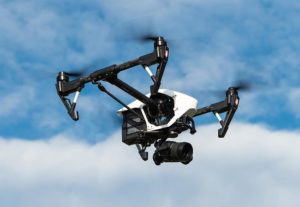
Continue reading below, or listen:
This bill has no impact on commercial or civil operations in the state, and is applicable only to public agencies.
Arkansas House Bill 1653, now Act 525, prohibits the purchase or operation of drones manufactured in China or other “covered entity” countries. The Act is similar to a recently passed Florida bill, but differs in significant ways that make the Act more manageable for public safety agencies.
How the Arkansas Act Differs from the Florida Ban
The recently enacted ban in Florida has caused problems for public safety entities and other state agencies by limiting drone options to a very narrow list of only 5 drone manufacturers. In addition, the ban provided no provision for grandfathering existing equipment, forcing public safety agencies to retrain personnel and replace entire fleets in a short time frame. Florida lawmakers continue to debate the issues that public safety agencies face as a result of the ban.
Which Drones are Banned, and What is a “Covered Entity”?
From Act 525:
(1) “Covered foreign entity” means an individual, foreign government, or a party other than an individual or foreign government:
(A) On the Consolidated Screening List or Entity List as designated by the United States Secretary of Commerce(B) Domiciled in the People’s Republic of China or the Russian Federation;
(C) Under the influence or control by the government of the People’s Republic of China or the Russian Federation; or
(D) That is a subsidiary or affiliate of an individual, government or party referred to in subdivisions (a)(1)(A)-(C) of this section;
In contrast to the Florida ban, Arkansas’ Act 525 will prohibit the purchase or operation of a drone manufactured or assembled in China, Russia, or a “covered entity” – defined as Chinese, Russian, or listed on the federal government’s “covered entity” list. This approach defines what can’t be used – most notably, DJI drones – but does not strictly limit the options which can be used to replace them. In addition, Act 525 gives agencies 4 years, until May 1 2027, to comply with the rule. Those four years are significant: while not the full life cycle of most drone hardware, it will give agencies time to slowly replace and retrain, without forcing them to simply stop operating.
Finally, Act 525 provides a waiver provision: allowing public agencies to apply for an exception to the rule:
The Secretary of the Department of Transformation and Shared Services may waive the restriction under subdivision (b)(2) or subdivision (c)(2) of this section upon:
(1) His or her review of the necessity to purchase a small unmanned aircraft system that is manufactured or assembled by a covered foreign entity due to exigent circumstances, Counter Unmanned Aircraft Systems, or criminal investigative purposes; and Notification to the General Assembly.
Miriam McNabb is the Editor-in-Chief of DRONELIFE and CEO of JobForDrones, a professional drone services marketplace, and a fascinated observer of the emerging drone industry and the regulatory environment for drones. Miriam has penned over 3,000 articles focused on the commercial drone space and is an international speaker and recognized figure in the industry. Miriam has a degree from the University of Chicago and over 20 years of experience in high tech sales and marketing for new technologies.
For drone industry consulting or writing, Email Miriam.
TWITTER:@spaldingbarker
Subscribe to DroneLife here.